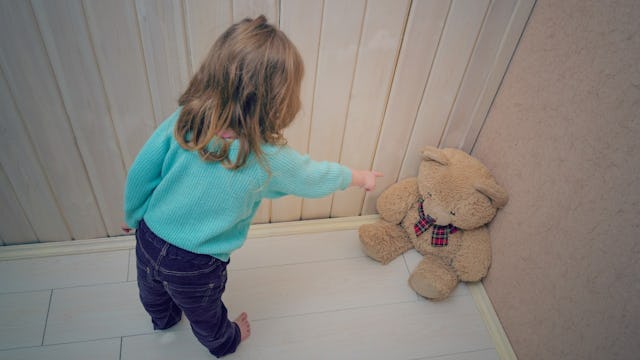Sometimes It Is Your Kid's Fault

Sooner or later, we all encounter a parent whose kid can do no wrong. Nothing is ever their fault. In every incident – which, coincidentally, seem to pop up all the time – someone else is always to blame.
If their grades are tanking in school, it isn’t because they spend all their time throwing spitballs instead of listening; it’s got to be because the teacher is mean and hates them. If there’s a conflict with another kid, the parent’s question isn’t “What happened?” but “What did Johnny do to you?” These parents are always calling other parents to complain, always barging angrily to the school with their hair on fire to have sit-down talks with the principal about the school’s “failings,” always griping to their friends about how everybody is picking on their kid.
Sure, kids get picked on, and unfair situations do arise, and sometimes it is someone else’s fault. I’m not saying this doesn’t happen legitimately, or if it does, we shouldn’t take action; we should always err on the side of compassion, and some kids need a little extra. I’m all about advocating for our kids, standing up for them (or with them) when they’re the victims of an injustice.
But first … shouldn’t we make sure they are the victims of an injustice?
If your child is constantly the victim of some sort of wrongdoing, maybe it’s time to stand back and take a hard look at the role he’s playing. Because sometimes, parents, it’s your kid who’s doing crappy things. And if you’re never making him take responsibility, you’re just as much at fault. You’re teaching him that it’s okay to do crappy things, as long as you play it off like someone else is to blame.
It’s every parent’s first instinct to jump to their child’s defense, and that’s not wrong – it’s the sign of a good parent. But after that initial jolt of indignity that someone is accusing your special angel of being some sort of asshole, it’s time to separate parental emotion from fact and assess whether there might be even the teeniest possibility that the fault does indeed lie with them. Or, at the very least, ask yourself what part they played in the whole situation.
Because let’s face it: actions aren’t usually unprovoked, and consequences don’t come out of nowhere. It’s your job to take an honest, unflinching look at their responsibility in a conflict, even if it seems totally out of character. And if they played a role, you have to be willing to admit it instead of transferring blame to someone else.
It sucks, because admitting that they’re at fault feels like admitting that you’ve messed up as a parent. But it isn’t even about your parenting – kids are people, and people aren’t perfect, and since they’re not old enough to answer for it completely then it falls on you. No matter how exemplary your parenting is, kids are going to do stuff that they know damn well they shouldn’t do. Even kids who hardly ever act rebellious or sneaky. It’s all part of testing boundaries and learning how the world works, and it doesn’t always end well.
Not long ago, my middle son – the one I’d deem the kindest of all my kids, a Boy Scout, an honor student, lovable and compassionate and considerate (well, usually) – got angry at his older brother, so he peed on his pillow. He peed on his brother’s pillow. His behavior was a complete surprise, totally unlike him, and I was shocked that the thought would so much as cross his mind. But it did, obviously, and he unwisely acted on it. Lesson learned: even the nicest, most well-behaved kids do asshole things. It’s a fact.
Which is why it’s important that, when they do, you jump at the valuable opportunity to make them own up to it. This way, you’re teaching them not to do asshole things, instead of teaching them to do them and then twist it so someone else is at fault.
Besides, if you never allow your kids to accept blame – instead, directing them to project that blame onto other people, onto circumstances, onto situations – you send them the message that they have no control. Over anything. You teach them that they’re at the mercy of an unfair world where the deck is stacked against them, because you’ve repeatedly absolved them of any personal responsibility. And after a while, they start to believe that they’re helpless, that the world in general is out to get them. If nothing can be their fault, then it isn’t within their power to make any other type of difference either, right?
So if you find your kids repeatedly in the midst of conflict, whether it’s at school or with their friends, it’s your duty to do a little looking before you leap. Trust me, I understand that mama-bear instinct, the emotion that drives you to go for the throat of whoever has hurt your cub – but you’ve got to assess the situation objectively before casting the blame elsewhere. Because it isn’t helping; you’re just raising an entitled, finger-pointing jerk.
Kids who never take responsibility for their actions don’t magically turn into adults who do.